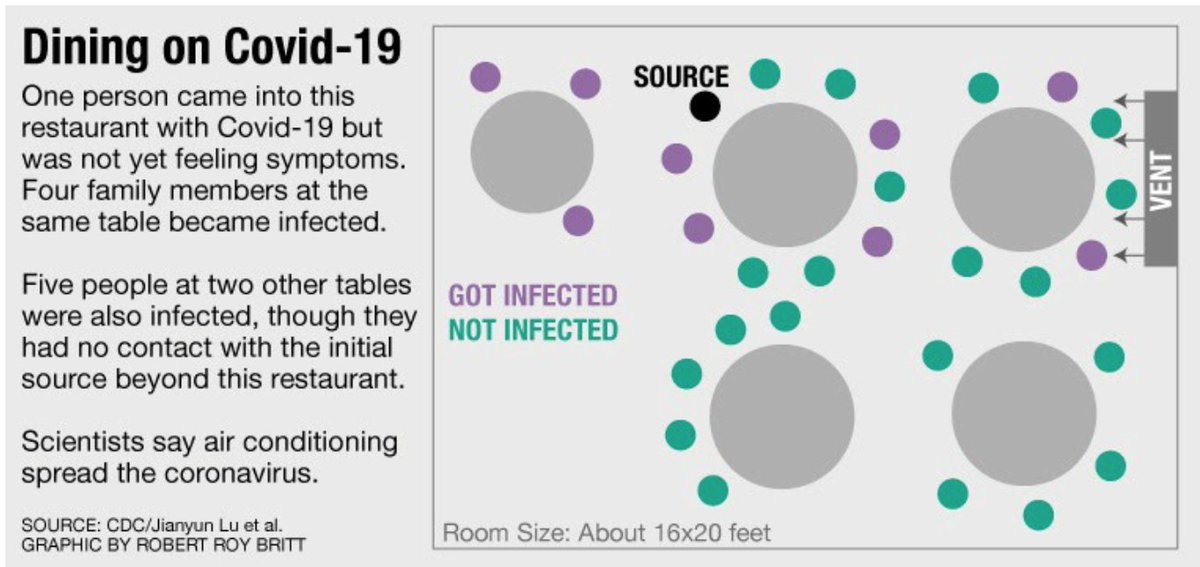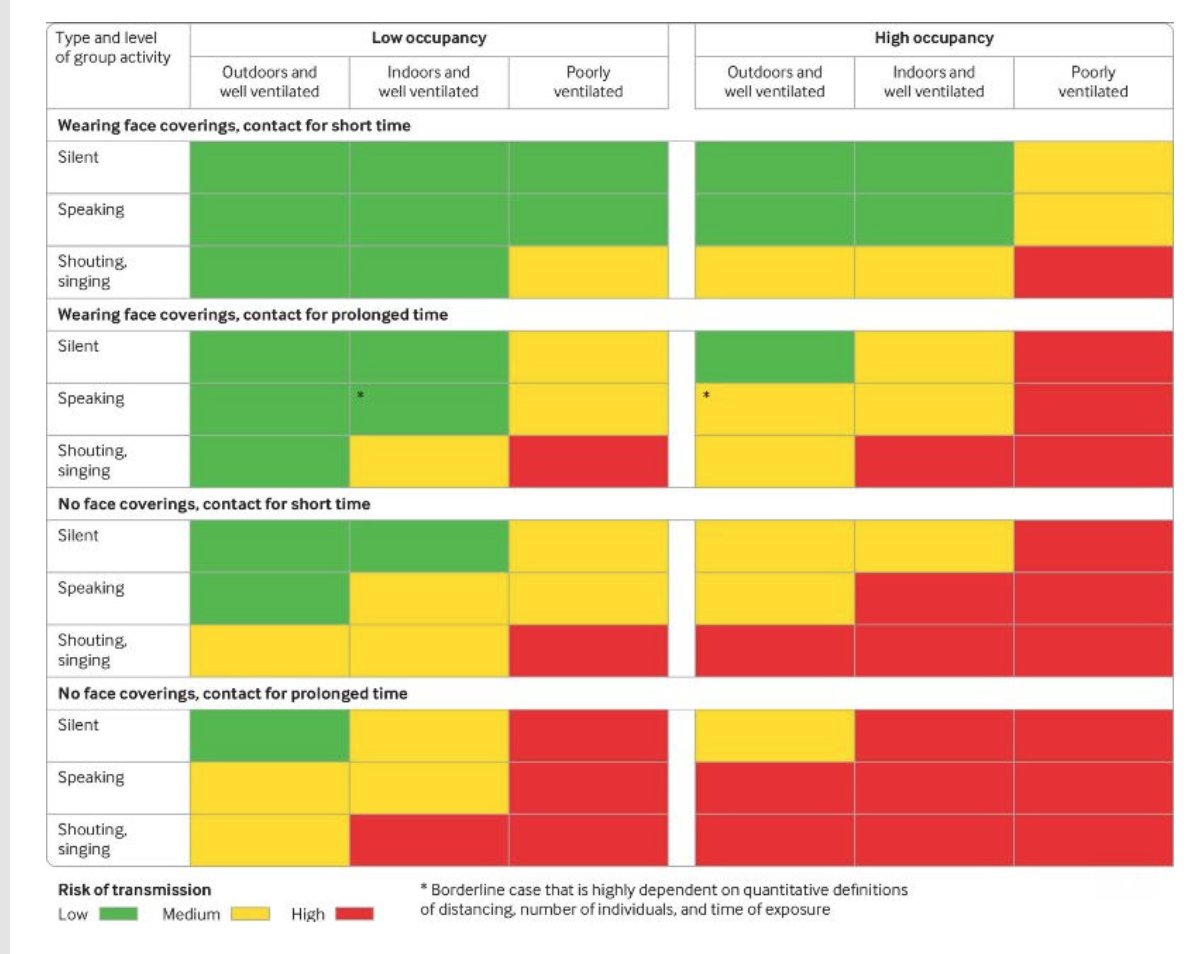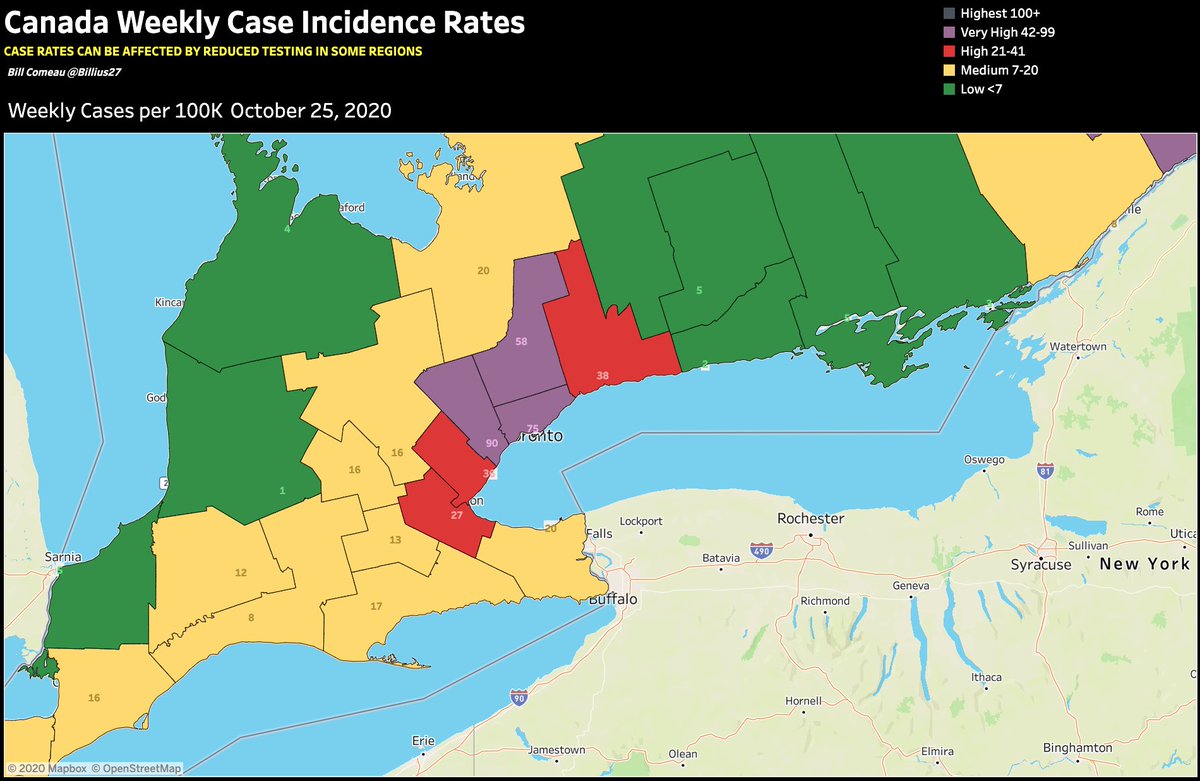About targeted #Covid19 restrictions and "fairness".
When we zero in on a small population like some regions, the odds of seeing a particular type of outbreak in a particular type of business in a particular timeframe becomes smaller. More https://abs.twimg.com/emoji/v2/... draggable="false" alt="⤵️" title="Nach rechts zeigender Pfeil mit Krümmung nach unten" aria-label="Emoji: Nach rechts zeigender Pfeil mit Krümmung nach unten"> https://twitter.com/SharkawyMD/status/1320742658101399552">https://twitter.com/SharkawyM...
https://abs.twimg.com/emoji/v2/... draggable="false" alt="⤵️" title="Nach rechts zeigender Pfeil mit Krümmung nach unten" aria-label="Emoji: Nach rechts zeigender Pfeil mit Krümmung nach unten"> https://twitter.com/SharkawyMD/status/1320742658101399552">https://twitter.com/SharkawyM...
When we zero in on a small population like some regions, the odds of seeing a particular type of outbreak in a particular type of business in a particular timeframe becomes smaller. More
2. To deal with that problem, statisticians often use Bayes Theorem. All that means is that there is too small a sample to make a conclusion unless we ADJUST it by our prior knowledge from larger samples. In the case of covid19, we see what& #39;s happened in
https://en.wikipedia.org/wiki/Bayes%27_theorem">https://en.wikipedia.org/wiki/Baye...
https://en.wikipedia.org/wiki/Bayes%27_theorem">https://en.wikipedia.org/wiki/Baye...
3. a country in other regions, what has happened in the past, what has happened in other countries around the world. In real life, if people around the world find that seatbelts save lives, then we use that knowledge. Now someone else might look at seat belt data in, say,
4. Burlington, and say "Well, we had 15 car crashes and the 5 who were not wearing seat belts were fine, so let& #39;s relax the seat belt law." This is the fallacy of using a small sample of events to draw a conclusion. By ignoring the mass of scientific information from a large
5. sample of perhaps 100,000 car crashes elsewhere, a local mayor may not see the true risk because "it hasn& #39;t happened here". (This is the same mistake people made about HCQ by the way.) Our science and our world knowledge about the pandemic tell us that
6. certain indoor settings are more risky, just like statisticians know that certain exposures increase the risk of cancers, like smoking. Just because no one died of cancer at mom& #39;s farm from smoking doesn& #39;t mean smoking it isn& #39;t dangerous.
7. So when a mayor suggests that targeting restrictions to just a specific type of setting THEIR region witnessed since Stage 3 started, they are falling into this trap. The epidemiological science from the wider world of infections tells us that a bar or indoor restaurant
8. is simply much more risky. That& #39;s why we rely on public health experts to advise us. Besides the common sense of this colour grid, there& #39;s are published rankings and studies identifying risks.
https://hartfordhealthcare.org/about-us/news-press/news-detail?articleid=26936&publicId=395">https://hartfordhealthcare.org/about-us/...
https://hartfordhealthcare.org/about-us/news-press/news-detail?articleid=26936&publicId=395">https://hartfordhealthcare.org/about-us/...
9. All this knowledge is squandered if a local official in Hoboken decides that their infections never started in a bar or at a strip club or wedding, so the world must be wrong. Bottom-line: the cries of "unfairness" by some ignore this science, especially at a time when
10. infections are high in a region. The pleas for "evidence-based decisions" for a region are disingenous. They only want to see the evidence in their region, not the wider science and proof outside that region. They want to rely on the fallacy of small numbers.
11. We can either trust the science or we can go the gambler route that says, hey, the # 3 horse won last time at this track, has to be a good bet!
Trust in the experts, don& #39;t let politicians and business lobbyists push the public health of Canadians aside.
Trust in the experts, don& #39;t let politicians and business lobbyists push the public health of Canadians aside.

 Read on Twitter
Read on Twitter





